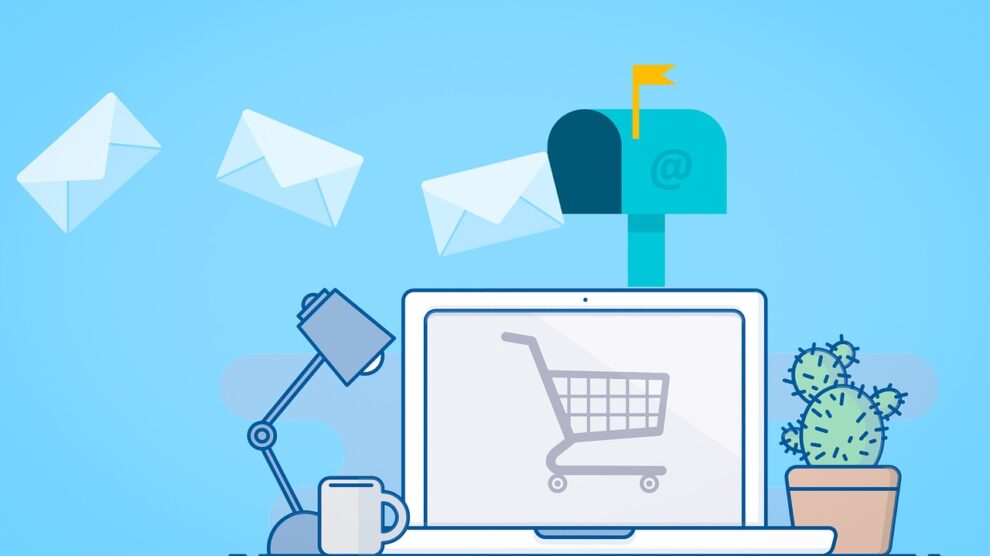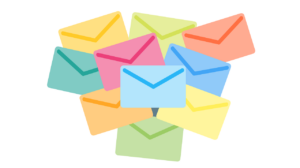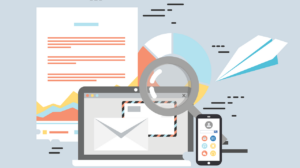“Testing leads to failure, and failure leads to understanding”- Burt Rutan
While the quote highlights Rutan’s philosophy of learning through iterative testing and failures to achieve breakthroughs in engineering, it seems tailor-made for A/B testing.
A/B testing has been a holy grail for email marketers for decades. But it’s also one of the most time-consuming tasks. Numerous variables affect email campaign performance today, making it harder than ever to gather valuable data through manual tests. For example, Subject Line X might perform well one week, but using that result to guide decisions months later isn’t always reliable.
Luckily, AI disruption is rewriting what’s possible with email A/B testing. With 64% marketers already using AI and automation, AI tools make the testing process faster, more efficient, and smarter.
With AI-powered A/B testing, you can handle multiple variables and run real-time tests. This means you get fresh insights into what works best and can use that information right away while it’s still valuable.
In Email Upler’s latest infographic, “Optimizing Email Design and Coding with AI,” many email marketing industry leaders share their experiences with various AI tools for email campaign testing.
In this blog, we’ll explore how to increase the effectiveness of your email marketing experiments using AI-powered A/B testing tools.
What Is A/B Testing in Email Marketing?
A/B testing, or split testing, involves creating two versions of an email to see which one performs better. These versions can differ slightly or significantly, depending on what you’re testing—be it email design, subject lines, CTA placement, or send times.
Once you’ve crafted these versions, you send them to different subsets of your email list. Each email version engages recipients and prompts responses. You then analyze their performance using key metrics like open rates, click-through rates, or conversions to determine which version is more effective.
Let’s say you’re launching a new product and want to send an email announcement. You decide to test two different subject lines:
- Version A: “Exciting News! Check Out Our New Product”
- Version B: “The Wait is Over! Get Ready for Our Latest Launch!”
You send Version A to 10% of your list and Version B to another 10%. After a few hours, you check the results. If Version B has a higher open rate, you send that subject line to the remaining 80% of your list.
A/B testing in email marketing offers flexibility to cater to your specific needs. It can be as simple as a head-to-head battle between subject lines to see which gets the most clicks.
However, A/B testing can also be a multi-layered experiment. Imagine sending out two completely different email layouts – one with a minimalist design and the other with a more visually engaging format. By analyzing which version drives more clicks, you can identify the layout that resonates best with your audience.
Now, let’s look closer at how you can leverage AI to run A/B tests for your email marketing campaigns.
Why A/B Testing Matters to Email Marketers?
- To make strategic choices based on real-time results. You can refine your email marketing strategy by analyzing performance metrics for maximum effectiveness.
- To boost email open-rates. A/B testing lets you compare different subject lines and see which resonates best with your audience.
- To improve click-through rates. A/B testing allows you to compare calls to action, design elements, and even content snippets to see what compels recipients to click through to your website or landing page.
- To convert passive readers into loyal customers. A/B testing lets you test personalized offers and CTAs tailored to specific audience segments, increasing the likelihood of conversions.
- To craft personalized emails. A/B testing, combined with AI, helps you experiment with personalized content, product recommendations, and offers, leading to a more engaging and effective email experience for every subscriber.
5 Key Elements to Optimize Using AI-Powered A/B Testing in Email Marketing
Test Ideation
AI can take the guesswork out of deciding what to test next. Instead of relying on hunches, let AI analyze your data and suggest variations for email subject lines, designs, or call-to-action buttons. These AI-driven insights ensure your A/B tests are based on solid data.
For example, AI tools like Phrasee and ShortlyAI can analyze your email content and target audience and then generate and test multiple subject line variations.
Des Brown, Director at TouchBasePro, recommends using their platform for its optimized content feeds, recommender engine, and ability to calculate the best email sending times. Another favorite of his is Subjectline.com, which excels in automated A/B testing of subject line efficacy.
Incorporating these AI tools into your strategy can significantly enhance your test ideation process, leading to more effective and insightful A/B tests.
Data Analysis and Modeling
Feeling overwhelmed by A/B testing data? Ever wished you could predict how your next email campaign will perform? AI-powered data analysis can be your game-changer for unlocking email marketing success.
AI simplifies the process by diving deep into your A/B test results, uncovering hidden patterns and trends that might take ages to identify manually. This way, you can pinpoint areas for improvement before launching your next campaign.
Imagine getting ahead by accurately predicting the performance of your future email campaigns. AI tools like Epsilon and Salesforce Marketing Cloud analyze historical data to provide actionable insights and suggest improvements, enabling you to make informed, data-driven decisions.
Additionally, AI-powered A/B testing tools can predict which elements, such as specific product images, will boost your click-through rates based on previous campaigns. By tapping into these AI predictions, you can focus on what truly works for your audience and fine-tune your email marketing strategy.
Personalization
Email personalization with AI is easy and effective. AI marketing tools automatically personalize emails in real time using subscriber data.
Engage your recipients by tailoring emails to their specific interests and behaviors. Tools like Movable Ink and Emarsys use AI to personalize content based on recipient data such as demographics, purchase history, and website behavior. This drives higher engagement and conversions.
A/B Testing Process
If you feel bogged down by the complexities of A/B testing, AI can simplify it all for you. AI can streamline the entire A/B testing by summarizing key themes, prioritizing which tests to run first, and refining manual workflows, making your testing more efficient.
Save time and increase efficiency by automating your A/B testing process. Tools like Adobe Campaign and Optimizely handle everything from creating test variations to tracking results and identifying winners, allowing you to focus on strategy.
Automate your tests to compare elements, like call-to-action button colors, and let AI determine the most effective choice.
Send Time Optimization
AI predicts the perfect time to send your emails. This strategic approach can drastically boost open and click-through rates because people are more inclined to interact with emails when actively checking their inboxes.
Mailchimp and Klaviyo, powered by AI, are some of the best email marketing platforms that recommend the optimal send times for your email campaigns. Plus, these tools keep learning and adapting, refining recommendations as you send more campaigns.
With AI-driven send time optimization, you can maximize the impact of your emails and effortlessly achieve better results.
5 Best AI-Powered A/B Testing Tools for Email Marketing
- Mailchimp
Key Features: Built-in A/B testing for subject lines, content, and send times. AI-powered segmentation and personalization capabilities.
- ActiveCampaign
Key Features: Comprehensive testing of subject lines, pre-headers, email content blocks, images, videos, and CTAs.
- Klaviyo
Key Features: Built-in AI for predictive analytics, A/B testing, smart send time optimization and industry-specific benchmarks.
- Drip
Key Features: AI-driven testing of up to 4 email content and subject line variations in one campaign. Includes dynamic segmentation and automation.
- Benchmark
Key Features: Ideal for small to medium-sized businesses. Offers subject line and campaign comparisons, Google Analytics integration, and optimal email delivery times.
Frequently Asked Questions (FAQs)
What are AI Tools for Email A/B Testing?
AI tools for A/B testing in email marketing use artificial intelligence to automate and optimize the process of testing email variations. These tools analyze data to predict and identify which email tweaks work best for your audience.
Why should I use AI for A/B Testing?
AI enhances A/B testing by automating processes and providing deep insights. It saves time, improves accuracy, and allows for sophisticated testing, leading to better email engagement and conversion rates.
What are some common types of A/B testing I can do with AI?
Common types of A/B testing with AI include:
- Testing different subject lines to optimize open rates.
- Experimenting with email content, images, and video variations to improve engagement.
- Testing call-to-action (CTA) buttons to increase click-through rates.
- Optimizing send times for better email delivery and response rates.
How do AI Tools for A/B Testing work?
AI tools for A/B testing analyze past data and user behavior to predict the impact of different email variations. They automate the testing process, monitor real-time results, and provide actionable recommendations for optimizing email campaigns.
How much do A/B Testing AI tools cost?
Costs for AI tools in A/B testing vary based on features and providers. Some offer basic functionalities for free, while others require subscription fees based on usage and additional services. It’s advisable to compare options to find a tool that aligns with your budget and email marketing goals.





